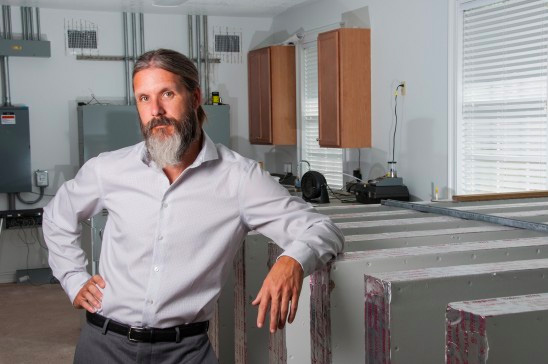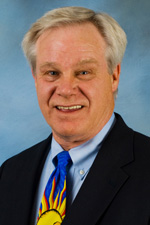By
https://www.wndu.com/2021/10/19/medical-moment-preventing-covid-spread-home/
By Barb Abney
May 14, 2015

The University of Central Florida is the only university-led team in the nation to receive part of a $4 million investment by the Energy Department to develop and demonstrate energy efficient methods of keeping homes cool in the summer and warm in winter.
The Energy Department’s Building America program is working with industry partners to develop cutting-edge innovations and resources that will lead to 50 percent savings in new homes by 2025 and 40 percent savings in existing homes by 2030.
The Building America Partnership for Improved Residential Construction, led by UCF’s Florida Solar Energy Center (FSEC), will receive nearly $1 million for research focused on optimal comfort systems for heating, cooling, air distribution, and humidity control. The project will also study high performance ventilation systems and indoor air quality strategies.
“This research will help us develop integrated approaches to making homes more energy efficient while keeping them comfortable, healthy and durable,” said Eric Martin, the project’s lead researcher and program director in FSEC’s Building Research Division.
Much of the work focuses on cooling applications in hot and humid climates like Florida’s. Work on keeping homes warm in the winter will be conducted by partners at Washington State University.
Experiments will be conducted in laboratory homes located at FSEC, as well as in occupied homes.
“To ensure near-term market penetration, we are working with several industry partners including production home builders and product manufacturers,” Martin said. “But we are also focused on influencing codes and standards, which can result in a significant market impact for years to come.”
A major focus of the Building America program is reducing home heating and cooling because combined they represent the highest single energy use for U.S. homeowners or 40 percent of a home’s energy consumption. In 2014, U.S. homeowners spent $70 billion to heat their homes and $24 billion to cool them. Improving the energy efficiency of home heating and cooling systems and building envelopes including roof, walls and windows is estimated to potentially reduce space conditioning energy consumption by as much as 70 percent.
Over the past 20 years FSEC has led three Building America Industry Partnerships: the Energy Efficient Industrialized Housing Partnership, the Building America Industrialized Housing Partnership and the Building America Partnership for Improved Residential Construction.

Philip Fairey, deputy director of the Florida Solar Energy Center (FSEC), is the recipient of the Johnson Controls’ second annual Building Efficiency Lifetime Leadership (BELL) award. The BELL Award recognizes individuals who have devoted many years of their career to energy efficiency, sustainability or renewable energy.
Johnson Controls, a leader in energy efficiency and sustainability, presented the award at their Green Tie Affair – a customer appreciation event – held in conjunction with the Greenbuild Conference last week in Phoenix, AZ.
Fairey’s nearly 30 years of experience in buildings research has advanced renewable energy and energy efficiency in Florida. His significant contributions include the development of moisture transport control and radiant barrier technology, advanced cooling and dehumidification systems, and energy analysis software tools.
Read more